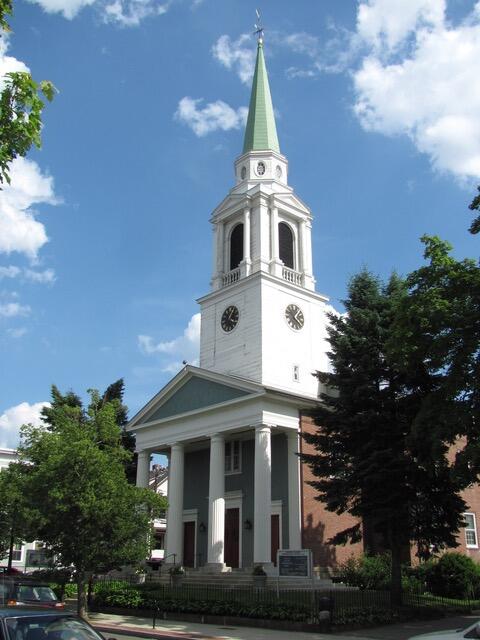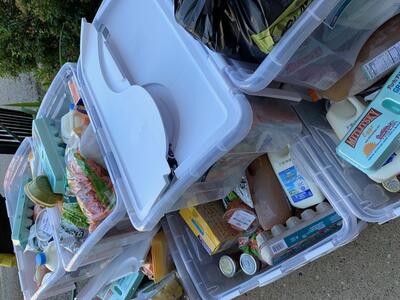
Houses of worship often mean more than just weekly service to those affiliated with the space. They are community centers, a place to see friends, to learn something new, and increasingly, a place where you know you can get a healthy meal.
The Brighton Allston Congregational Church knows this well. The congregation, which formed in the 1840’s, has for the past forty years been serving a Wednesday Night Supper to members of the community. Its food pantry also serves another 400 families monthly, both through drop by service and delivery. Pantry operations have recently been aided with funds from Harvard’s Emergency Response Grant.
The goal of these efforts, as Pastor Mark Seifried describes, is to help people by providing them a healthy meal, but also to maintain a sense of community.
“Our community is incredibly resilient – they are strong, and they are adaptive,” says Seifried. “So many people are living in trauma, but being able [to be a part] of the church, you can see how much they value community in the way they respond to being together, even with the nominal interactions we can have right now.”
In addition to efforts to ensure the community has access to healthy food, the congregation has shifted other services, such as weekly worship, bible study, and other church business online through platforms like Zoom and Facebook Live.
“What's interesting is we are averaging about 350 per week accessing our service on Facebook alone, when before we’d have about 40 or so people in our sanctuary,” Seifried says. He also notes the shift to online has allowed the church to more widely share its commitment to being a progressive and inclusive community. “It’s hard to share that message with just signs on our front lawn.”
 Houses of worship were included on Massachusetts’ list of places that could open in Phase 1, but Pastor Seifried said while they have had conversations on what re-opening in-person operations would look like, they are using the utmost caution to keep their community safe. So, for now, the congregation will maintain their current model where services can be accessed online, and food can be picked up from their food pantry or in takeout containers each week as they continue their long-standing Wednesday Night Suppers.
Houses of worship were included on Massachusetts’ list of places that could open in Phase 1, but Pastor Seifried said while they have had conversations on what re-opening in-person operations would look like, they are using the utmost caution to keep their community safe. So, for now, the congregation will maintain their current model where services can be accessed online, and food can be picked up from their food pantry or in takeout containers each week as they continue their long-standing Wednesday Night Suppers.
While it took time to adapt, Seifried credits the church’s partnerships and the people in the government, education, and small business sectors that are a part of the church’s network for making its pivot a success. For example, the church worked with the Allston-Brighton Health Collaborative to deliver food offerings to members who can’t get to the church to pick up what they need.
“We can’t do what we do alone,” says Seifried. “We depend on partnerships for communication, for volunteers – we literally couldn’t do what we do without the network we have. We are so blessed that we have people in the neighborhood who are deeply engaged and care about our ministry.”
As he talks about the relationships the church has built in the community and the number of people in Allston and Brighton committed to helping each other he notes “when we find out what unites us, we can celebrate what makes us different.”
